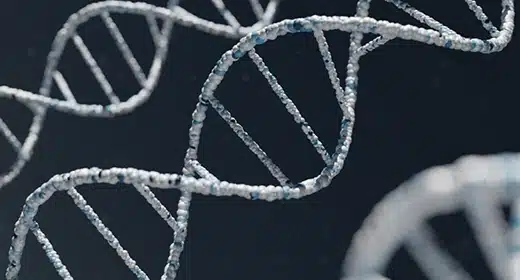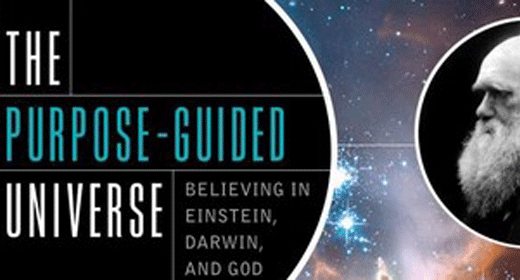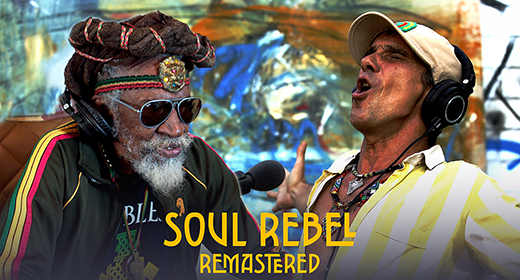by Peter Diamandis: Welcome to the healthspan revolution – a decade during which the convergence of AI, quantum, gene therapies, CRISPR, cellular medicines, and epigenetic re-programming are converging with the promise of adding decades to our healthspan.
AI, quantum, gene therapies, CRISPR, cellular medicines, and epigenetic re-programming are converging with the promise of adding decades to our healthspan.
This is the first in a sequence of “Abundance Blogs” aimed at offering you a Longevity Mindset—delivering data-driven-optimism—to get you excited about the coming revolution.
These Abundance Blogs are based on synthesizing over 300 interviews I’ve had during my annual Platinum Longevity Trips, my Moonshots podcast, and in consultation with the medical team at Fountain Life.
Welcome to the healthspan revolution – a decade during which the convergence of AI, quantum, gene therapies, CRISPR, cellular medicines, and epigenetic re-programming are converging with the promise of adding decades to our healthspan.
This is the first in a sequence of “Abundance Blogs” aimed at offering you a Longevity Mindset—delivering data-driven-optimism—to get you excited about the coming revolution.
These Abundance Blogs are based on synthesizing over 300 interviews I’ve had during my annual Platinum Longevity Trips, my Moonshots podcast, and in consultation with the medical team at Fountain Life.
To begin, I’ll discuss the concept of “Longevity Escape Velocity.”
Approaching Longevity Escape Velocity
How long do you think you’ll live?
Somewhere in your mind, you have a number or at least a range. Where did you get it? Why do you believe it? My hope is to give you a reason to push that number higher.
When I was in medical school, I remember watching a documentary on the topic of “long-lived sea life.” I was shocked to learn that the bowhead whale can live to 200 years old… and the Greenland shark can reach an impressive lifespan of 400 and 500 years (and even have pups (babies) at 200 years old!).
I remember thinking, “If they can live that long, why can’t we?”
As an engineer and medical student, I figured it was either a hardware or software problem and it wouldn’t be too long before we could solve it.
My dear friend Ray Kurzweil, Co-Founder of Singularity University and Futurist at Google, and Aubrey de Grey, a leading biomedical gerontologist, speak about a concept called “Longevity Escape Velocity.”
“Today, by some estimates, science is adding about three months to your lifespan every year. In the near future (at some point), additional scientific breakthroughs will extend your lifespan by more than a year for every year you remain alive. Once that happens, we have reached Longevity Escape Velocity.”
During my Platinum Longevity Trips every year, I sit down with the leading scientists and innovators, the rebels and disruptive thinkers, to understand how they think about conquering aging. (BTW, my next Longevity Trip takes place twice, once in September and once in October 2024, in the Bay Area & San Diego.) During the past two years, I’ve specifically asked for their predictions on when we might reach Longevity Escape Velocity. Here are their answers:
Ray Kurzweil: Sooner Than You Might Imagine!
First up is my dear friend, mentor, and business partner Ray Kurzweil. Kurzweil has been called “the restless genius” by The Wall Street Journal and “the ultimate thinking machine” by Forbes. His New York Times bestsellers The Singularity Is Near (2005) and How to Create A Mind (2012) became definitive texts in the field of artificial intelligence and exponential technologies. His next book, The Singularity is Nearer, is expected later this year.
Beyond his brilliance, Kurzweil is most famous for the accuracy of his technological predictions. To date, his written predictions, 147 in total, have demonstrated an astounding 86% accuracy (see his Wikipedia entry for more details on his predictions).
This past March, at the 2024 Abundance Summit, when asked about his prediction as to when we will reach Longevity Escape Velocity, his answer was surprising and very encouraging:
“For those in reasonably good shape and with reasonable means, I believe they will have access to longevity escape velocity by the end of 2030.”
George Church, PhD: Within a Decade or Two…
Professor George Church, PhD, is an indomitable figure at the forefront of genetics, synthetic biology, and longevity research, based at Harvard Medical School.
He has founded over 50 cutting-edge synthetic biology companies that range from ventures that are regrowing human organs to one (Colossal) that is bringing back extinct animals. He has pioneered breakthroughs in genome sequencing, gene editing, and gene synthesis.
According to Dr. Church:
“I think age-reversal advances could mean that we reach Longevity Escape Velocity in a decade or two, within the range of the next one or two rounds of clinical trials.”
David Sinclair, PhD: There is No Upper Limit…
So, what does that mean? Can we extend the healthy human lifespan past today’s record of 122? Can humans live past 200 years? Or even indefinitely?
Last year I sat down with Dr. David Sinclair, Professor of Genetics at Harvard Medical School and author of Lifespan, to discuss these topics for an episode of my Moonshotspodcast.
I opened with a question about how long humans might be able to live: “Is there an upper age limit?” Sinclair’s answer was inspiring:
“There is no biological upper limit to age… of course there isn’t. We are the same stuff as a whale that can live a lot longer than us (200 years), we’re built of the same stuff as tortoises, pretty much the same stuff as trees that can live thousands of years, it’s a software problem.”
Why This Matters: Heredity vs. Lifestyle
How long you live is a function of many factors: where you were born, your genetics, your diet, and your mindset.
Most people imagine that longevity is mostly inherited, that the genetic cards you are dealt have predetermined your lifespan.
You may be surprised by the truth.
In 2018, after the analysis of a 54-million-person ancestry database, scientists announced that lifespan has little to do with genes.
In fact, heritability is accountable for roughly 7% of your longevity.
The highest estimates for heritability verge around 30%—which still means at a minimum, you’re 70% in control of how you age.
The power of shaping your healthspan is much more in your hands than you might have imagined.
I implore you to think of what YOU would do with an additional 30 years of healthy life.
In the next blog in this series, I’ll discuss the importance of adopting a Longevity Mindset









































